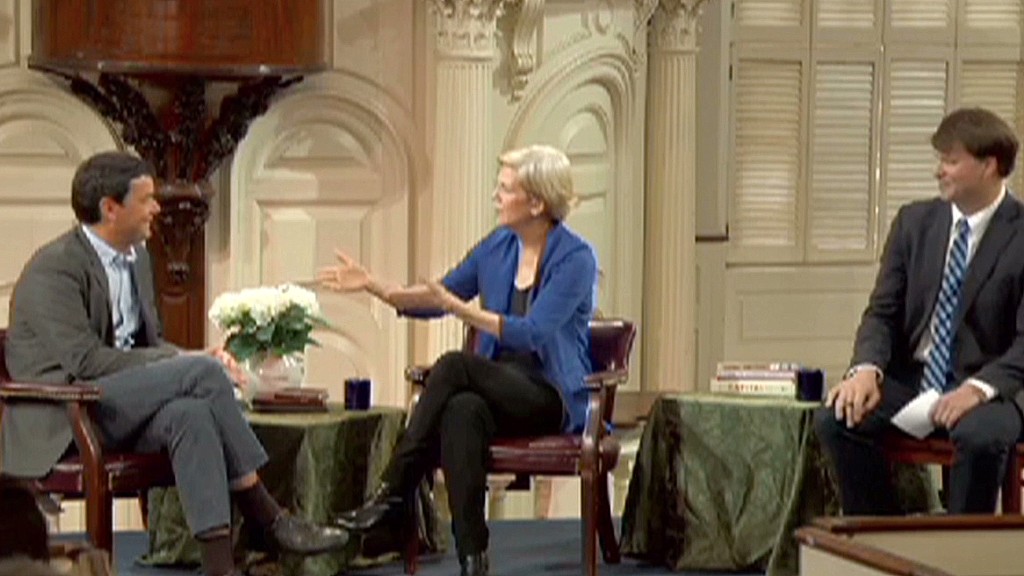
There are few rock stars in economic and tax policy, but Thomas Piketty is one of them. The famous French economist is an authority on income inequality. His book on the subject sold out on Amazon and spent 22 weeks on the New York Times bestseller list this year.
But even after penning a 700-page book, Piketty admits that he and other economists have only skimmed the top of the inequality iceberg.
"We know a little bit more than we used to know, but we still know far too little." Piketty said. "The book is trying to put together a large quantity of historical data on the evolution of income and wealth distribution."
Piketty spoke at New York University on Friday to defend the research for his tome, "Capital in the 21st Century." One of his hallmark arguments is that the United States needs a progressive tax system to stem economic inequality.
"If inequality is two dimensional, you don't want a one dimensional tax system" said Piketty, referring to how the wealthy earn a lot more income over their lifetime, but also often start out with a big boost by getting a large inheritance from their parents or grandparents.
Americas have often debated whether to tax the estates of those who die and leave money to the next generation.
Related: Blueprint for a more progressive tax code
Piketty used extensive and historical tax data on incomes and estates in his book to argue that inequality in the United States and Europe is back to pre-World War I levels -- think Downton Abbey.
He claims that the wealth held by the top 1% is outpacing the economic growth of many developed nations. It is also influencing American politics.
"I think this very large concentration of wealth also affects the political system," Piketty said Friday. Wealth offers "access to the time of people [politicians]. Access of influence. Access for the pleasure of access."
Related: Elizabeth Warren says the market is broken
The latest data on income inequality from the Federal Reserve supports Piketty's findings. While most of Americans saw declining or flat income gains over the past four years, the uber rich saw widespread increases.
It's even more pronounced when it comes to stock market gains, one of the main drivers of wealth. Less than half of Americans have any money in the stocks at all. The top 10% of U.S. families have a median value of $282,000 invested in equities. Middle class families, in contrast, have only $14,000.
Related: Who's getting rich of the stock market?
Piketty rocketed to celebrity status in March when his tome hit U.S. book stores and stunned the world by being a bestseller even though it's wonky and data heavy. During his book tour this year, Piketty met with the White House Council of Economic Advisers and U.S. Treasury Secretary Jack Lew.
The harshest criticism of Piketty's work came from the Financial Times. Its economic editor, Chris Giles, argued Piketty used flawed estate tax data in Britain to reach his conclusions on how much wealth the nation's 1% has. Giles suggested that Piketty should have used survey data instead. Piketty responded to Giles, admitting the estate tax data was not perfect, but said it was his best option to measure income inequality over time.
Although Piketty used the similar metrics to compare countries, he said no story is the same.
"Each country has a very complex relationship to inequality," he said. "All I'm trying to prove is this big reminder of a large historical perspective on inequality and taxation."


